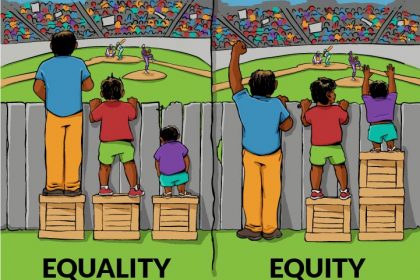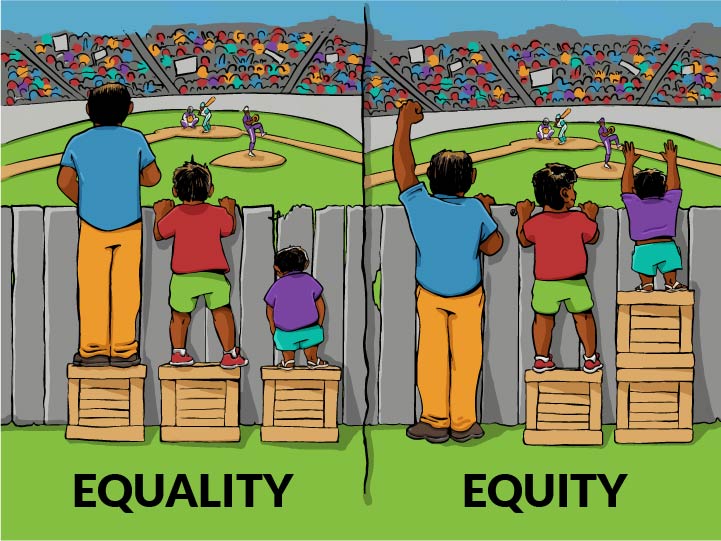
This post was originally published on the Interaction Institute for Social Change (IISC) blog.

IISC has long believed that this image, illustrating the difference between equality and equity, is worth a thousand words. As a gift to the world of equity practitioners, IISC engaged artist Angus Maguire to draw a new version of an old favorite (since we could only find pixilated versions of the original). Please feel free to download the high-resolution image and use in your presentations.
In the News
Cynthia Silva Parker was quoted by Sustainable Cities Network in an article: Infusing Equity into the Urban Planning Process.
What is equity? In the simplest terms, it means fairness, which is not necessarily the same thing as equality.
It’s not about everybody getting the same thing,” Parker said. “It’s about everybody getting what they need in order to improve the quality of their situation.”
One difficulty in including equity goals in planning is that the people who need them most can be hard to involve. Traditionally, planners involve stakeholders by inviting them to public meetings and asking them to read and comment on plans. This can be a time-consuming process, and people who work multiple jobs and lack transportation and child-care options are unlikely to show up at the library for a three-hour meeting.
And even if they’re able to offer their time, they may not be willing.
“Trust is the No. 1 thing, ‘Why are you asking, and will it make a difference,’” Parker said. “When we got started, there was a bit of interesting community jargon: ‘Planning Fatigue.’ People were tired of being asked to come to meetings, asked to share their vision, asked to draw another picture of a beautiful community, and then nothing is going to happen, or it’s going to take 15 years and they’re going to say, ‘We don’t even remember that we were part of that.’”
Public Training Schedule and More
Please see the original post to download the Equity vs Equality image, for information on IISC’s 2016 Public Training Schedule, and for related stories.
Over the past 25 years, IISC has developed a lens through which they facilitate social change and they bring it to every engagement. IISC invites groups and leaders to shift power dynamics, focus on building networks, and magnify love as a force for social change. Using this collaborative change lens, IISC sees leaders overcome challenges and have astounding impact.




